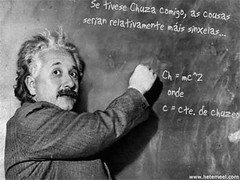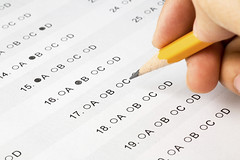AP Psychology Testing and Intelligence Flashcards
Terms : Hide Images [1]
| 8818309429 | intelligence | mental quality consisting of the ability to learn from experience, solve problems, and use knowledge to adapt to new situations |  | 0 |
| 8818309430 | Charles Spearman | used and developed factor analysis (identifies clusters of related items) |  | 1 |
| 8818309431 | general intelligence (g) | a general intelligence factor that according to Spearman and others underlies specific mental abilities and is therefore measured by every task on an intelligence test | 2 | |
| 8818309432 | L. L Thurstone | He stated that there are 7 primary mental abilities including reasoning, verbal comprehension and memory. |  | 3 |
| 8818309433 | Howard Gardner | He said abilities are best classified into 8 intelligence including spatial, musical, logical-mathematical, linguistic, naturalist, interpersonal, intrapersonal, and bodily-kinesthetic. |  | 4 |
| 8818309434 | savants | condition where a person has limited mental ability but is exceptional in one area |  | 5 |
| 8818309435 | Gardeners Multiple Intelligences | visual/spatial verbal/linguistic musical/rhythmic logical/mathematical bodily/kinesthetic interpersonal interpersonal natural |  | 6 |
| 8818309436 | grit | passion and perseverance in the pursuit of long-term goals |  | 7 |
| 8818309437 | analytic intelligence | (academic-problem-solving) traditional intelligence traits |  | 8 |
| 8818309438 | creative intelligence | reacting adaptively to novel situations and generating novel ideas |  | 9 |
| 8818309439 | practical intelligence | required for everyday tasks where multiple solutions exist |  | 10 |
| 8818309440 | emotional (social) intelligence | perceiving emotions understanding emotions managing emotions using emotions |  | 11 |
| 8818309441 | delayed gratification (self-discipline) | is the key to long term success (according to the Stanford Marshmallow Experiment) |  | 12 |
| 8818309442 | Alfred Binet | helped label kid's mental ages to help predict future performance |  | 13 |
| 8818309443 | mental age | the chronological age that most typically corresponds to a given level of performance |  | 14 |
| 8818309444 | Lewis Terman | He was a Stanford professor and created the Stanford-Binet IQ test. |  | 15 |
| 8818309445 | IQ score | (Mental Age/Chronological Age) x 100 | 16 | |
| 8818309446 | Wechsler Adult Intelligence Scale (WAIS) | most widely used intelligence test; contains verbal and performance (nonverbal) subtests |  | 17 |
| 8818309447 | performance subtest | spatial relations, perceptual skills, and speed of thinking |  | 18 |
| 8818309448 | verbal subtest | language based and abstract cognitive skills |  | 19 |
| 8818309449 | Wechsler Intelligence Scale for Children (WISC) | similar to WAIS 6-16 year olds |  | 20 |
| 8818309450 | what IQ measures | a person's cognitive ability compared to population at large mental speed and span of your working memory |  | 21 |
| 8818309451 | achievement test | a test designed to asses what a person has learned |  | 22 |
| 8818309452 | aptitude test | a test designed to predict a person's future performance, aptitude is the capacity to learn |  | 23 |
| 8818309453 | standardization | defining uniform testing procedures and meaningful scores by comparison with the performance of a pretested group (Representative sample) form a normal distribution or bell curve |  | 24 |
| 8818309454 | normal curve (normal distribution) | symmetrical, bell shaped curve that describes the distribution of many types of data most scores fall near the mean |  | 25 |
| 8818309455 | 68% | Amount of people with IQs between 85 and 115 (one SD of the mean) |  | 26 |
| 8818309456 | 95% | Amount of people with IQs between 70 and 130 (two SD of the mean) | 27 | |
| 8818309457 | The Flynn Effect | intelligence scores have risen throughout the last 100 years or so (due to environment) |  | 28 |
| 8818309458 | reliability | when it yields consistant results | 29 | |
| 8818309459 | split- half reliability | dividing the test into two equal halves and assessing how consistent the scores are | 30 | |
| 8818309460 | alternate-forms reliability | using different varieties of the test to measure consistency between them | 31 | |
| 8818309461 | test-retest reliability | using the same test on two occasions to measure consitency | 32 | |
| 8818309462 | validity | the extent to which a test measures what it is supposed to meaure | 33 | |
| 8818309463 | content validity | extent to which a test accurately measure the subject intended to measure (entirety, breadth, etc.) | 34 | |
| 8818309464 | predictive validity | the extent to which test score forecasts future behaviors or results |  | 35 |
| 8818309465 | criterion validity | scores on a particular test are positively correlated with scores on another existing and well established test (criterion) of the same skill, trait, ability | 36 | |
| 8818309466 | crystallized intelligence | our accumulated knowledges reflected in vocabulary and analogies tests increases with age |  | 37 |
| 8818309467 | fluid intelligence | our ability to reason speedily and abstractly, as when solving novel logic problems decreases with age |  | 38 |
| 8818309468 | intellectual disability | limited mental ability intelligence score of 70 or below formerly referred to as mental retardation |  | 39 |
| 8818309469 | down syndrome | mild to severe intellectual disability and associated physical disorders extra copy of chromosome 21 |  | 40 |
| 8818309470 | High Intelligence | typically 130 IQ and above gifted education programs |  | 41 |
| 8818309471 | z-score | tells us whether a particular score is equal to the mean. below the mean or above the mean, by how many standard deviations |  | 42 |
| 8818309472 | percentile rank | percentage of scores that fall below a given score |  | 43 |
| 8818309473 | heritability | proportion of variation among individuals that we can attribute to genes |  | 44 |
| 8818309474 | stereotype threat | a self-confirming concern that one will be evaluated based on a negative stereotype |  | 45 |
| 8818309475 | Sternberg's Triarchic Theory | This theory holds that there are three types of intelligence. | 46 |
